EU Starts Building a European Identity
Adelina Marini, December 21, 2017
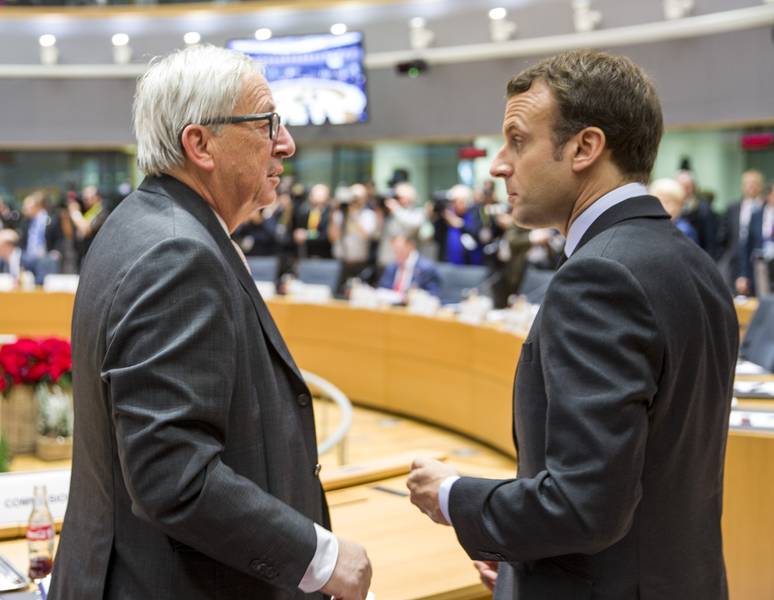 The migration crisis as well as the sprouting like mushrooms problems with the rule of law and with the European values in various corners of the EU have finally convinced European leaders that it is high time to start building a European identity. The issue has been circulating for a long time in the European public domain, but rather as an intellectual exercise of passionate pro-Europeans and Eurofederalists. The present situation, however, fills this, until recently, purely philosophic concept with sense and content. 2017 will remain in the Union's history as the year when several integrational taboos have been broken, and one of them is in the most conservative and often ideologically coloured areas of culture and education.
The migration crisis as well as the sprouting like mushrooms problems with the rule of law and with the European values in various corners of the EU have finally convinced European leaders that it is high time to start building a European identity. The issue has been circulating for a long time in the European public domain, but rather as an intellectual exercise of passionate pro-Europeans and Eurofederalists. The present situation, however, fills this, until recently, purely philosophic concept with sense and content. 2017 will remain in the Union's history as the year when several integrational taboos have been broken, and one of them is in the most conservative and often ideologically coloured areas of culture and education.
The Macron effect
This would have hardly been possible had Emmanuel Macron not appeared on EU stage with the ambition to shake the Union down to its foundations. He was first to raise the issue of European identity in his European speech in the Sorbonne in September. In his speech, he demanded, by 2024, every student to know at least two European languages, the establishment of European universities, and at least half of every age group of young Europeans to be able to spend at least 6 months in another member state. A month later, European Council President Donald Tusk (Poland, EPP) had something like a planning speech in which he outlined the three dimensions of the EU, one of which is a cultural community. Before the European Parliament he said that "we have the right and obligation to care for what distinguishes us from other cultures - not in order to be against someone, but to be ourselves".
A little while after, in November, preparations began for the first social summit in 20 years in Gothenburg, which was dedicated not only on adopting the EU's social pillar but also on culture and education. Two key documents were published ahead of the summit - by the European Commission and by European Council President Donald Tusk. However, both institutions focused on different things. The Commission, as usually, thinks about the bigger picture and more comprehensively, whereas Donald Tusk focused on what is politically feasible at a certain moment. For the Commission, the starting point should be a common identity at a time "when our European values and democracies are tested by awakening populist forces at home and abroad or by the spreading of 'fake news' and the manipulation of our information networks, it is the moment when European Leaders and the EU institutions must react", is said in the introduction of the Commission document.
According to the Commission, the best way to enhance European identity is through education and culture. The Commission points to several very important developments: digitalisation, automatisation, artificial intelligence and the future needs of skills and competences; demographic trends and the need of integrating culturally different migrant population; new methods of communication, social media, fake news and the need to spread media literacy among all citizens; the rise of populism and xenophobia, the risk of violent radicalisation.
Part of the decision of these problems is to boost student mobility but this seems to be a very serious problem. Despite measures undertaken so far, like the Bologna process for instance, high education and high school diplomas are not readily recognised by the member states which practically deprives young people of opportunities to study or work in another member state. According to the Commission, this is "a lost opportunity in equipping young people with a good education and a hindrance to the flow of ideas, which impedes the work of universities, research and innovation". This is also an obstacle before the integration of the labour market.
The Commission proposed to overcome these problems by establishing a European education area which includes mutual recognition of high education and high school diplomas. It also proposes expanding the Erasmus+ education programme to cover all categories of education. Creating a European student card by 2019, a network of European universities (Macron's idea) and to cooperate unimpededly across borders, and to compete internationally.
The Commission not only has adopted the French president's ideas but it is going further than that pointing out that attention should be paid to the education programmes in Europe themselves, which are, generally, of good quality but there are a lot of shortcomings as well. The number of low achievers in science has increased by 25% in the past years. According to the Commission, these young people will have very serious problems in the labour market. Twenty percent of the working age population in the EU has low literacy and low mathematical skills. A much larger number of people have a low digital competence in the digital age - 44%. The Commission's assessment is that 90% of the jobs of the future will require some level of digital skills. Moreover, at present, 40% of European businesses have troubles recruiting ICT specialists.
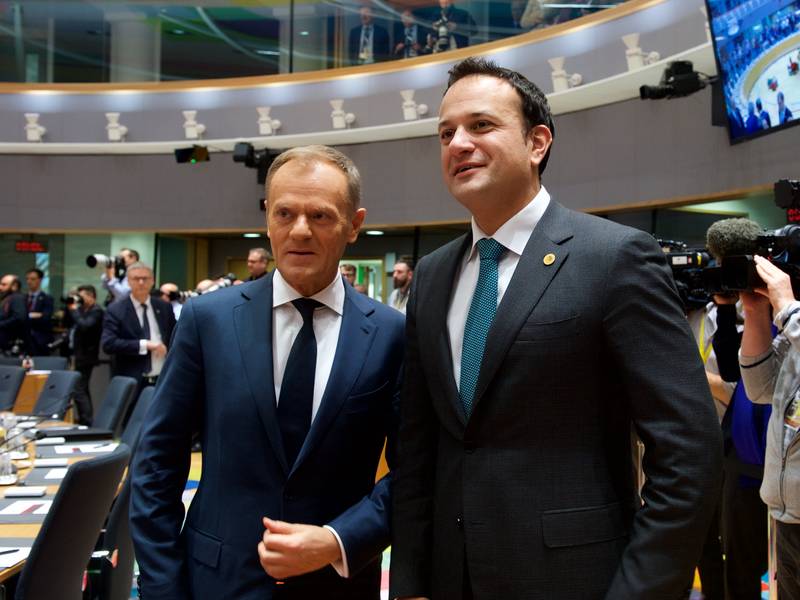 Another very serious problem the EC highlights is offering equal opportunities. Weak-performing children generally come from low-income households or with low education. Very often education does not offer a real chance for social mobility, which means that those who are poor will remain poor. The other problem the French president focused on in his speech in the Sorbonne was multilingualism. Almost half of EU citizens speak or understand their mother tongue only. How can a European identity be build in a Union of 24 official languages, and a Union which often compares itself to the US at that?
Another very serious problem the EC highlights is offering equal opportunities. Weak-performing children generally come from low-income households or with low education. Very often education does not offer a real chance for social mobility, which means that those who are poor will remain poor. The other problem the French president focused on in his speech in the Sorbonne was multilingualism. Almost half of EU citizens speak or understand their mother tongue only. How can a European identity be build in a Union of 24 official languages, and a Union which often compares itself to the US at that?
In most member states, learning two foreign languages is compulsory for all pupils but in Belgium (the French community), Germany, Ireland, Spain, Croatia, Hungary and the UK this is optional. The Commission continues with the problems pointing out that too few pupils choose to study science, technology, engineering and mathematics, especially girls.
What does the Commission propose?
The Council has to commit to improving learning of languages in Europe by putting a benchmark by 2025 all Europeans graduating from high school to know well at least two foreign languages. The Council should also set ambitious targets low achievers and early-leavers to drop respectively from 15% to 10%, and from 10% to 5%, by 2025. Benchmarks should be also set for digital skills and entrepreneurship.
The Commission also insists freedom, democracy, equality, respect for the rule of law, human rights and dignity to be part of the European identity, and therefore asks the Council to adopt a recommendation in this direction. Because of fake news and alternative facts the Commission believes the EU should take a stronger position in support of media freedom, media pluralism and media transparency in Europe. The Commission is aware that the EU has no direct competences when it comes to media but it supports, including financially, the Euronews channel. Through the years, however, the European public broadcasters turned into minority shareholders in the channel whereas private broadcasters and investors from outside the EU increased their share.
The Commission is concerned that the channel does not always leave an impression that it is a European medium which always reflects pluralism of opinion in Europe and European values. Therefore, the Commission says, it is time to discuss this issue and decide what to do with Euronews. EU's funding share in Euronews is 36% or 25 million euros annually.
Currently, the member states invest on average 5% of their gross domestic product in their education systems. However, there are significant divergences. Some countries, like Romania for instance, spend less (around 4%) and others up to 7% (Denmark). This has to change, the Commission says, and proposes this issue to be taken into account when discussing the next EU budget.
The dark side of European history and culture as the last Jedi
The note of the European Council president reveals much less ambitions for making the European society more cohesive as such. The ideas of the member states are reduced to creating a network of European universities from various member states, with integrated curricula and programmes which will allow students to study abroad and attend lectures in at least two languages. Another idea is to integrate education programmes which will allow student exchange. Multilingualism and the creation of a European student card are the other priorities in the note. The document proposes the launch of a reflection process on digital revolution and artificial intelligence. Donald Tusk proposes all opportunities envisaged in the Lisbon Treaty for educational and cultural integration to be explored. He specifically quotes three articles - 165, 166, 167. The three envisage much stronger cooperation in the area of education.
Education and culture are also part of Donald Tusk's Leaders' Agenda, and the first discussion took place at the EU summit in Gothenburg but there was no word at the summit of the European values, media and populism the European Commission talks about in its own document. Indicative of how weak integration is in education and culture is the fact that the relevant ministers meet only three times a year. Foreign and finance ministers, for instance, meet every month. Transport ministers also meet often, as well as the agriculture ministers. In November, the ministers of culture held a very deep and public debate on the role of culture for building cohesive societies but many of the participants took part only for the sake of appearances.
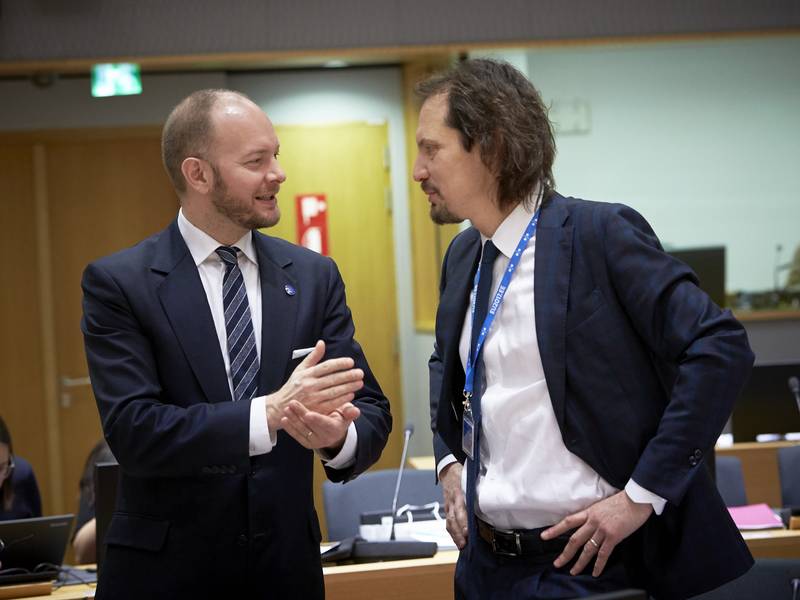 The discussion took place under the presidency of Estonian Culture Minster Indrek Saar who put it in the context of rising migration from outside the EU as well as the growing mobility within the EU which, in his words, has led to diverse societies where people with different cultural, social and religious identity live side by side. "As much as living in such a diverse community can be enriching it may also give rise to tensions and put social cohesion at risk", he said and recalled that the economic and financial crisis of 2008 created fertile ground for populism, nationalism, radicalism and extremism. He believes, though, that culture can contribute to resolving these problems.
The discussion took place under the presidency of Estonian Culture Minster Indrek Saar who put it in the context of rising migration from outside the EU as well as the growing mobility within the EU which, in his words, has led to diverse societies where people with different cultural, social and religious identity live side by side. "As much as living in such a diverse community can be enriching it may also give rise to tensions and put social cohesion at risk", he said and recalled that the economic and financial crisis of 2008 created fertile ground for populism, nationalism, radicalism and extremism. He believes, though, that culture can contribute to resolving these problems.
Finland asked for empirical evidence of how culture affects cohesion and how democracy can be supported. Finnish Minister of Culture Sampo Terho said the Council of Europe has the needed benchmarks which can be used for this purpose. Dario Franceschini, the minister of culture of Italy, said that culture has to be the driving force of European integration at a time when Europe is being tackled by fear, lack of governance, nationalist and populist trends. "We need courage", he said and added that Europe has no alternative. Luxembourg shared that almost 50% of its population is not of the Luxembourgish ethnic background.
Lithuania admitted that it does not have problems with migrants yet but, nonetheless, concerns are not diminishing. Bulgaria Minister of Culture Boil Banov spoke of community centres as a successful integrating and cohesive form. "We believe that the achievements of community centres, in terms of cohesion of society, are unique, especially in small communities", he said. The most meaningful statement was made by two German representatives. Germany was represented by its federal state secretary for culture and by a representative of the provinces. Georg Schuette, a state secretary, said the initiative was more important than ever mainly because of populist slogans.
He raised two issues - about the role of women in culture and media because in many areas they are "awfully underrepresented", especially at leading positions. The second issue is cultural integration. "Our societies are increasingly being marked by immigration", Mr Schuette added. The representative of provinces focused on the totalitarian past and the role of culture for remembering the crimes of totalitarian regimes. In his words, "our free societies in Europe are driven not least from the experience of the totalitarian regimes of the 20th century. That experience, however, is no longer directly accessible to younger generations. The same goes for migrants who now have to be integrated". He said that Germany is doing its best to "make sure that the engagement with the darker side of history is continued".
"In Germany we have learned the importance of fundamental rights to analysing our own history. The crimes of regimes, like that of ex-DDR, are central to this, and cooperation with international partners is part of that", the representative added. UK's deputy permanent representative in the EU Katrina Williams gave the example of theatres as a place for engagement with refugees. She mentioned a project which the UK works on with partners from the Netherlands and Italy for integration through community theatre. "We should also remember that cultural and creative exports shape how we in Europe are viewed by the rest of the world", she added.
Most statements, especially of representatives of the new member states, were highly disappointing, including that of Croatian Minister of Culture Nina Obuljen Korzinek of whom one would have expected sharing experience about the role of culture in overcoming the severe consequences of ethnic and separatist conflicts.
For the first time conclusions on education and culture
The December EU summit in Brussels last week will remain in history as the first which raised education and culture to such a high political level, and this at a time when the Union is suffering of serious division, thanks to the migration crisis which, from its part, revealed serious differences in terms of values. Although the solutions in the conclusions can hardly be termed bold, the final text of the document went through some cosmetic changes which, however, were quite telling. Leaders agree that social, educational and cultural dimension is important for the cohesion of Europe and for building a common future.
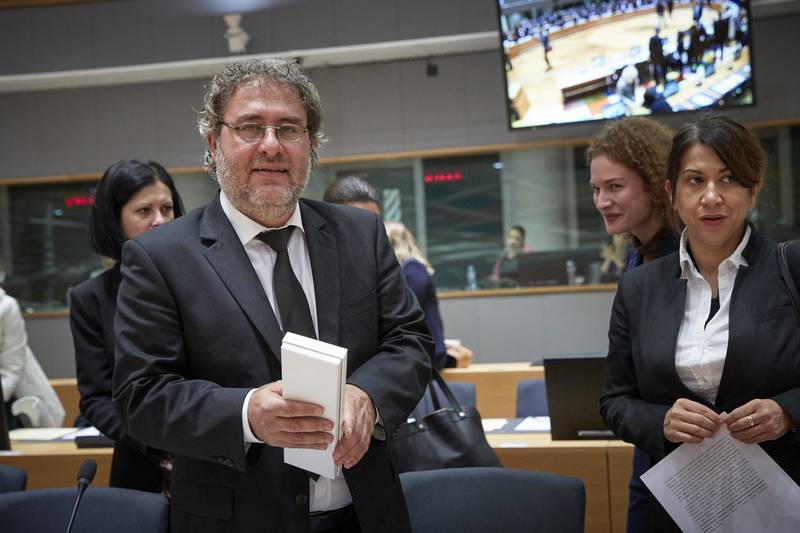 In the same time, however, they do not agree the EU to have a coordinating role. The draft conclusions, adopted by the General Affairs Council before the 14-15 summit said that in Gothenburg was expressed readiness to make much more for education and culture in the context of building cohesive and inclusive societies. Those are areas where "the EU plays an important supplementing, supporting and coordinating role". However, the coordinating role was removed from the adopted text, which means the leaders are still cautious in this area.
In the same time, however, they do not agree the EU to have a coordinating role. The draft conclusions, adopted by the General Affairs Council before the 14-15 summit said that in Gothenburg was expressed readiness to make much more for education and culture in the context of building cohesive and inclusive societies. Those are areas where "the EU plays an important supplementing, supporting and coordinating role". However, the coordinating role was removed from the adopted text, which means the leaders are still cautious in this area.
There are differences between the texts regarding learning of foreign languages. In the draft, it was said that young people speaking at least two European languages in addition to their mother tongue has to be an objective, whereas in the adopted document the word 'objective' is not mentioned at all. It is said that learning languages should be increased "so that more young people will speak at least two European languages in addition to their mother tongue". On all other issues - creation of a network of some 20 European universities by 2024, creation of a European student card, and the mutual recognition of high school diplomas - there are no differences between the two texts.
French President Emmanuel Macron, for whom this was an important step because it was under his initiative that education and culture have been raised for the first time at such political level, said significant progress has been achieved in this area. He also said that preparation for this was in close cooperation with German Chancellor Angela Merkel. Irish Prime Minister Leo Varadkar was one of the few leaders who mentioned the issue after the summit. He said that the Irish government had already published a statement outlining what actions will be undertaken in the coming week on this issue. The topic was mentioned by Croatian Prime Minister Andrej Plenkovic but only as one of the points on the agenda without expressing any particular opinion on the issue.
The integration step in this area is insignificant but the fact that it has been for the first time raised at supranational and such a high political level shows that this will not be the last one. Building a European identity will be a hard and long process but it is all the more clear that it is inevitable if the Union wants to survive.
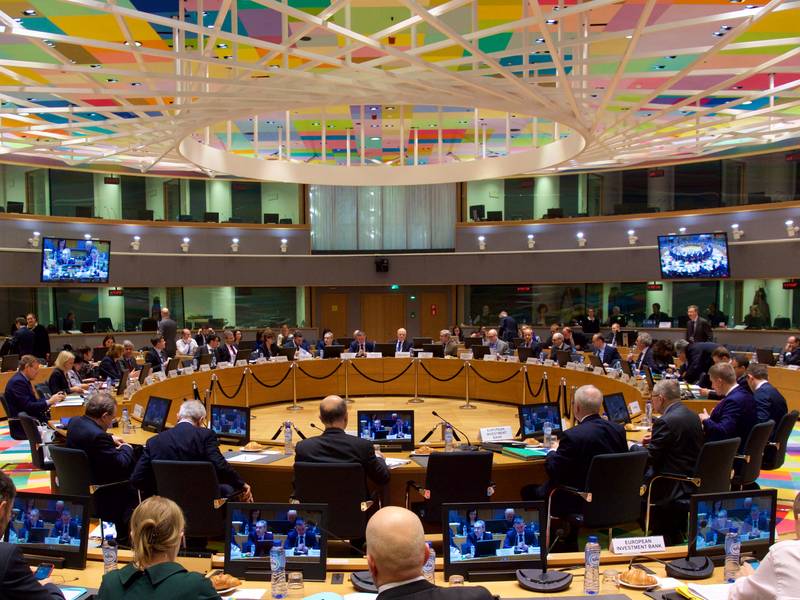 | © Council of the EU
| © Council of the EU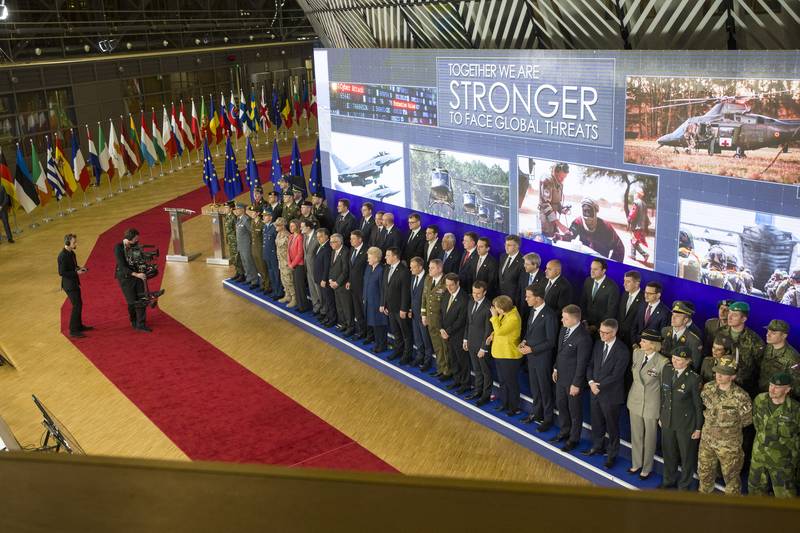 | © Council of the EU
| © Council of the EU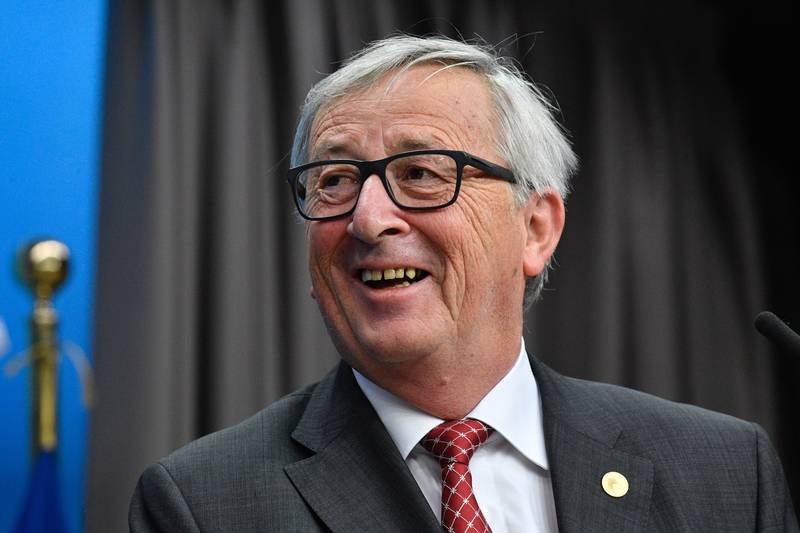 Jean-Claude Juncker | © European Commission
Jean-Claude Juncker | © European Commission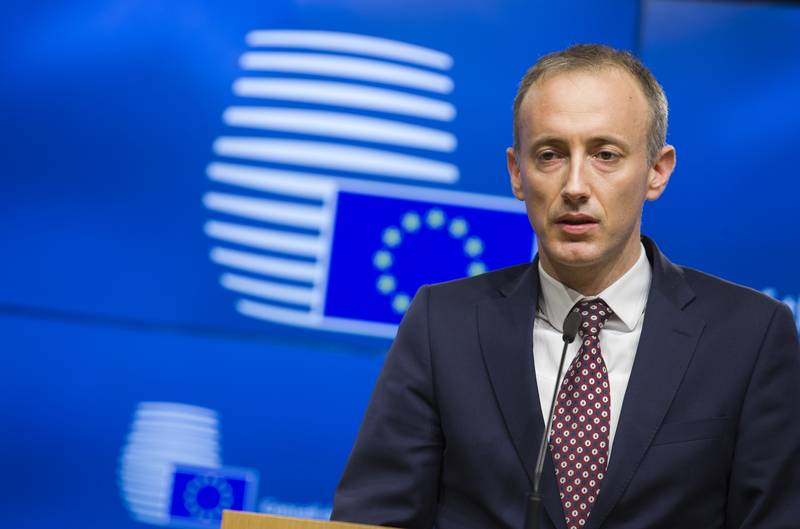 Krasimir Valchev | © Council of the EU
Krasimir Valchev | © Council of the EU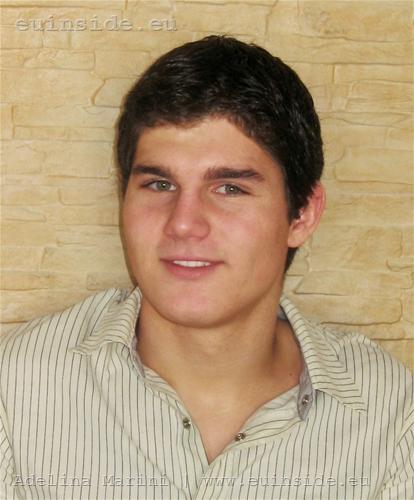 | © euinside
| © euinside | © EU
| © EU